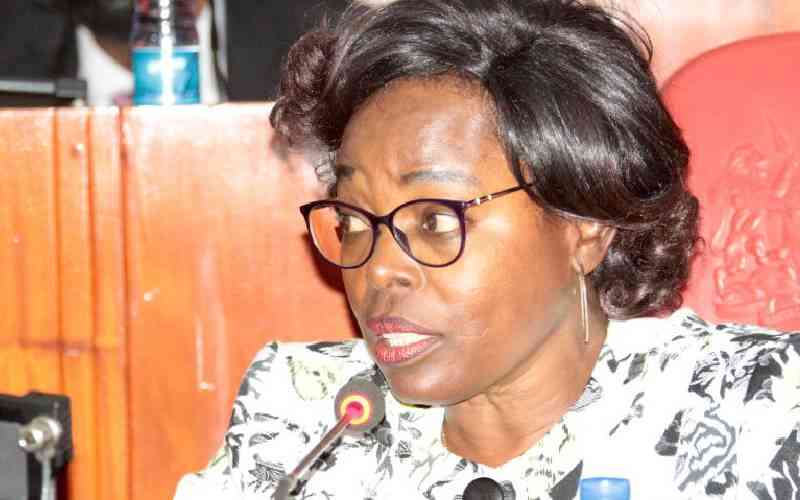×
The Standard e-Paper
Home To Bold Columnists

Controller of Budget (CoB) Margaret Nyakang'o warned that the manual payroll is prone to abuse and may lead to loss of public funds where there is a lack of proper controls. [David Njaaga, Standard]
The Controller of Budget has raised concerns over high pending bills in Mt Kenya counties and use of manual payrolls during the first quarter of 2022/2023 financial year.